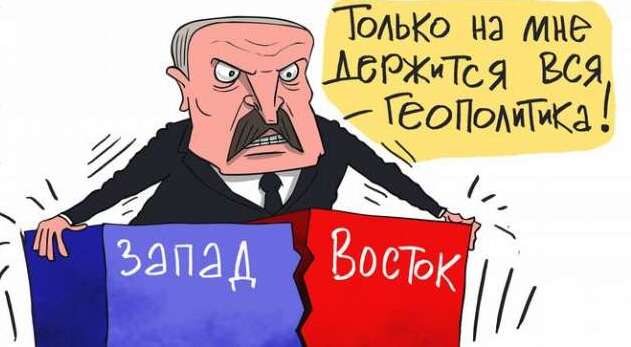The West condemns elections in Belarus, the regime responds with readiness for escalation
 The situation got worse
The situation got worse

The reaction of the Belarusian regime to the criticism of the 2024 electoral campaign indicates that official Minsk is not interested in even the minimum normalization of relations with the West.
The West predictably did not recognize the results of the Single Voting Day (SVD). The United States condemned the sham parliamentary and local elections of the regime, which took place in an atmosphere of fear and did not meet democratic criteria. Washington also called on Lukashenka to stop the repression, release political prisoners, and start a dialogue with political opponents.
The German Foreign Ministry condemned the systematic repression during the electoral campaign in Belarus.
The Chairman of the Congress of the Council of Europe, Mark Cools, called the elections in Belarus a sham and condemned the repression. The Congress continues to support Belarusian democratic forces and hopes for joint activities within the framework of the Council of Europe’s Contact Group.
The President of the Parliamentary Assembly of the Council of Europe (PACE), Theodoros Rusopoulos, stated that democratic elections are impossible when freedoms of speech and assembly are suppressed, and called the SVD a parody of democracy. The elections were held against the backdrop of ignoring international obligations under international law, increasing repression, and the complete absence of credible observation.
Josep Borrell, the EU High Representative for Foreign Affairs and Security Policy, commenting on the SVD results, stated that the new deputies of the House of Representatives and local councils lack democratic legitimacy. This assessment was influenced by the constantly increasing and unprecedented level of repression, human rights violations, restrictions on political participation and access to independent media by the regime, as well as the denial of access to OSCE ODIHR representatives to observe the SVD.
Subsequently, the Council of the European Union extended sanctions against the Belarusian regime until February 28, 2025. The decision was made based on the annual review of restrictive measures, as well as considering the ongoing repression and sharp deterioration in the human rights situation in Belarus, and the country’s participation in Russia’s military aggression against Ukraine.
In turn, the Belarusian Foreign Ministry articulated the regime’s position regarding these statements. Minsk once again made it clear that it does not take this criticism into account. Moreover, the regime accused the West of interfering in its internal affairs, threatened to intensify repression within the country in response to new sanctions, and called the EU’s demands for the release of political prisoners unfounded. Minsk also expressed hope that more responsible and sensible politicians would emerge in Brussels following the 2024 electoral campaigns, who would contribute to the return of pragmatic relations with the Belarusian regime and Russia.
In a message addressed to the West, Minsk also outlined its geopolitical loyalty to the Kremlin, expressing serious concern about Brussels’ support for “neo-Nazis and the nationalist policy of the political leadership of Ukraine, NATO expansion, and Kyiv’s intention to become a member of the organization.” The Belarusian Foreign Ministry also stated that the EU’s condemnation of the deployment of Russian nuclear weapons on the territory of Belarus justifies the actions of official Minsk.
Subscribe to our newsletter




Situation in Belarus
Constitutional referendum: main consequences


 Video
Video
How to count the political prisoners: are the new criteria needed?


 Video
Video
Paternalism In Decline, Belarusian Euroscepticism, And The Influence Of Russia


 Video
Video












